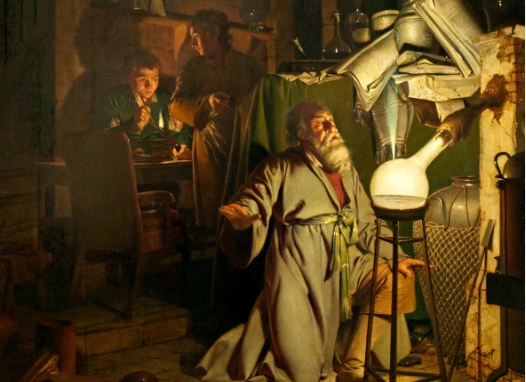In another piece, I referred to the fact that there was an alchemist formula to creating gold from lead and in the UK, precisely on January 13, 1404, it was King Henry IV of England who signed a law making it a felony to create gold and silver out of thin air, meaning that he had passed a law to ban the manipulation of lead into gold. What was all this about?
A legislation prohibiting the creation of gold and silver out of thin air was enacted into law by King Henry IV of England on January 13, 1404. This was known as the Act Against Multiplication.
It prohibited “multiplication,” which in alchemy meant finding a way to create more of a material, such as gold, from a less amount. That was one of the main objectives of alchemy, the branch of study that eventually gave rise to modern chemistry, and it was something that people, including respectable religious leaders, serious scientific intellectuals, and powerful heads of state, genuinely believed you could accomplish back then.
Furthermore, the English government was quite worried that a resourceful alchemist might actually discover the highly sought-after multiplication method. The riches and authority of the government would face opposition from someone who could increase gold and silver hoards that were not under the jurisdiction of the Crown or Parliament. It was a genuine and potentially rather frightening threat for Henry IV, who had to deal with several uprisings during his rule.
It is obvious that European science had unusual circumstances during the late Middle Ages and early Renaissance. Serious research was, on the one hand, focused on ideas such as cloning a pile of gold into two piles or turning lead into gold (a la Rumplestiltskin, but with a larger danger of heavy metal poisoning). However, some of those same scientists—such as Roger Bacon in the early fifteenth century or Robert Boyle and Isaac Newton in the late seventeenth century—were also formulating the first modern theories about atoms and the nature of chemical reactions, as well as discovering the fundamentals of combustion and improving methods for producing gunpowder.
Robert Boyle, who is most recognized for elucidating the inverse relationship between air temperature and volume, which results in compressed air occupying less space, effectively advocated for the Act’s repeal in 1689, almost three centuries after it was passed. Like Isaac Newton, he dedicated a great deal of time to the issue of multiplication, but his most significant contribution to science was his defense of chemistry as a legitimate branch of science apart from alchemy and medicine that merited independent investigation.
Aside from that, Boyle defended your freedom to attempt cloning your hoards of gold and silver.

